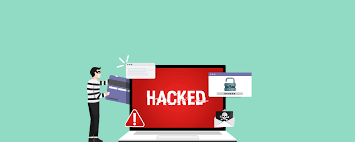You can’t see anyone getting into your web site unless you have protection system on it. Invisible are these electronic thieves, they are also fast and smart. So you have an obligation to protect the information / data from theft since damages done by hackers can’t be solved easily. Basic protection can discourage several hackers from getting to your website and look elsewhere. Here is what you have to do to keep your website safe from hackers.
Install a web application firewall. (WAF). It can be software or hardware based. WAF reads every bit of data going through it and gangs between your website server & data connection. Modern WAFs are cloud based and they are provided as a plug and play service, aimed at modest monthly payments. Basically, the cloud service is basically deployed in front of the server and here, it serves as a gateway for all of the entering traffic. Once installed, WAF provides a full peace of mind, by spoiling all hacking trials and cleaning out the other types of undesirable traffic, such as malicious bots and spammers. By doing this, you will avoid hackers from your site.
Stay updated. Always stay up dated with hacking threats. If you having at least a simple knowledge of what is conceivable then you can defend, keep your website against hackers. Follow updates, use the data, info you gain to freshen the protections in place when needed.
Update everything. The updates cost software firms money. They sometimes do it when necessary, yet a lot of people who use it do not install updates instantly. If reasons behind update are safety vulnerability, adjourning an update leaks you to attack in the temporary period. Hackers can scan hundreds of websites in an hour searching for vulnerabilities that can allow them to halt in.
Firm up access control. Admin level of a website is an easy way into all you don’t want hackers to see. Use the user passwords and names that can’t be predicted. Change default database add to something harder to guess and random. Then limit the login attempts in a certain time, even that of a password reset, since email accounts can also be hacked.Don’t send login details through email, incase an illegal user has got access to the account.
Tighten network security. Computer managers in your office may be accidentally giving an easy access route to the website servers. Make sure that:
Passwords change frequently.
The Logins expire in a short period of inoperativeness.
Passwords are solid and not written down.
Scan all devices plugged into the network for malware all time they are attached.


